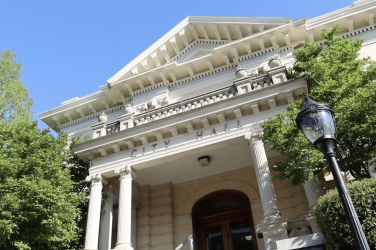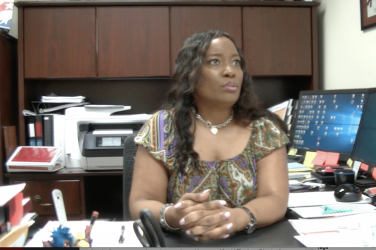With only two weeks until elections, the Georgia gubernatorial debate on Oct. 23 addressed a key issue on the minds of Georgia voters: jobs. The three candidates debated a range of issues related to their visions for creating and keeping jobs in Georgia. Topics included health care reform, criminal justice reform, voting rights, taxes and the state budget.
Much of the debate on job creation centered on Georgia’s rural hospitals and whether or not to expand Medicaid.
Why It’s Newsworthy: The three candidates have very different proposed plans for how to create and keep jobs in Georgia. Each plan would impact tens of thousands of Georgians’ employment and healthcare.Democratic candidate Stacey Abrams discussed her plan to expand Medicaid to access $3 billion of federal funds, which she said would support rural hospitals and create 56,000 jobs across the state. Sixty percent of these jobs, Abrams said, would be outside the metro Atlanta area.
Abrams emphasized the fact Medicaid expansion is an issue that claims bipartisan support. She cited the fact that, as governor of Indiana, Republican Vice President Mike Pence expanded Medicaid, reported also in The News & Observer.
Candidates Brian Kemp (R) and Ted Metz (I) opposed Abrams’ plan to expand Medicaid, each calling it a “broken system.” Kemp said Medicaid expansion was “no solution” to the problem of job creation.

A recent study by the Kaiser Family Foundation reported that Medicaid expansion supported the creation of more than 30,000 jobs in Colorado and more than 40,000 jobs in Kentucky. It also reported that states that have expanded the federal health insurance program have experienced “budget savings, revenue gains, and overall economic growth,” as well as “improved hospital financial performance and significant reductions in the probability of hospital closure.”
Kemp also pushed back against Abrams’ plan to create government programs to lend capital to small businesses. He said instead that “small community-based banks” are better situated to lend money to “hard-working Georgians” than the government is.
Kemp’s campaign website mentions supporting “farmers, agri-business, and small town start-ups” as well as promoting “economic development and investment” in Georgia.
Metz took a different approach from either Abrams or Kemp. He recommended “paring down” the amount of government jobs that he views as “unnecessary.” His plans would affects jobs across healthcare, education and government administration.
In the debate, Metz did not specify what positions he believed were unnecessary, but he encouraged Georgians to visit his website. The list could not be immediately identified on the website, and the candidate has been contacted for clarification.
Metz also supports job creation in the agricultural sector through the production of industrial hemp instead of what he referred to as “cash crop…monocultures” that he said currently dominate Georgia’s agricultural output.
Sierra Runnels is a first-year master’s student studying Health and Medical Journalism in the Grady College of Journalism and Mass Communication at the University of Georgia.







